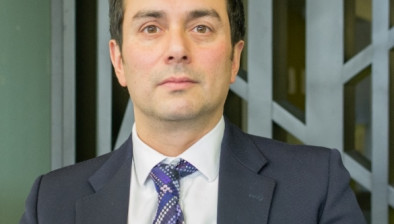Court of Appeal: Sentence for ‘single punch’ attack by Taekwondo expert upheld

The Court of Appeal has upheld a two-and-a-half year prison sentence for an “elbow punch” attack which left the victim with an acquired brain injury.

About this case:
- Citation:[2024] IECA 109
- Judgment:
- Court:Court of Appeal
- Judge:Ms Justice Úna Ní Raifeartaigh
Delivering judgment for the Court of Appeal, Ms Justice Úna Ní Raifeartaigh considered that “a period of two-and-a-half years is a significant sentence for a first time offender and even though the unfortunate victim has already gone through much suffering and will undoubtedly go through more, Irish sentencing law requires that the sentence be proportionate not only to the harm done but also to the individual offender”.
Background
The respondent met another man, Mr Conor Kelly, in the restroom area of the Cock and Bull pub in the early hours of 1 January 2020. CCTV footage of the restrooms showed the respondent and Mr Kelly having an amicable conversation lasting approximately four minutes when the respondent suddenly attacked Mr Kelly with an “elbow punch”, a move from the martial art of Taekwondo. The respondent was then seen delivering a kick to Mr Kelly whilst he lay on the ground, and subsequently exited the restrooms.
Mr Kelly sustained serious injuries including an acquired brain injury, facial scarring and trauma from the incident. The respondent handed presented himself to gardaí by arrangement on 25 June 2020 and was arrested. He made no comment during his interviews, and pleaded guilty days before his trial date on 20 June 2023.
A psychological report offered on behalf of the respondent detailed that he had been subjected to an incident of severe child sexual abuse by his adult cousin and had been bullied at school, leading him to take up Taekwondo at age seven to protect himself. The report also noted, inter alia, that his most recent encounter with this cousin has been in the Cock and Bull pub.
As to the night of 1 January 2020, the report suggested that at some point during their conversation Mr Kelly had allegedly leaned towards the respondent and said something to him. The respondent said that he interpreted this as a sexual advance and panicked, responding to this perceived threat with the elbow punch. The report concluded that the respondent was a “low risk” for further violence and that the incident had to be viewed in light of the respondent’s “unresolved trauma”, which led to the triggering of the respondent’s “fight or flight” response.
The Circuit Criminal Court
His Honour Judge Martin Nolan found that in light of the respondent’s work record and his absence of previous convictions, it appeared unlikely that the respondent would re-offend and felt that this was a “one-off” incident. The judge selected a headline sentence of seven years in prison for assault causing serious harm pursuant to s.4 of the Non-Fatal Offences Against the Person Act 1997 and took the respondent’s mitigating factors into account by reducing that sentence to three-and-a-half years, suspending the final year.
The appellant appealed on the basis that the respondent’s sentence was unduly lenient.
The Court of Appeal
Ms Justice Ní Raifeartaigh confirmed that “all sentences must take into account not only the offence but also the particular circumstances of the offender i.e. the accused person. The sentence must seek to balance those two things and achieve a proportionate result in light of all the circumstances.”
The court stressed that “’undue leniency’ is not the same thing as mere ‘leniency’, and it does not mean that this court is simply entitled to substitute its own view for that of the sentencing judge if it thinks that a more severe sentence would have been appropriate. A sentencing judge has a considerable range of discretion in sentencing and it is only if he or she has strayed beyond the permissible range of discretion and/or has made an error of principle that this court may consider that a sentence was ‘unduly lenient’ as distinct from ‘lenient’.”
Turning to the relevant legislation, the Court of Appeal contrasted s.4 of the 1997 Act, which can attract a sentence of life imprisonment, with the less serious offence of assault causing harm in s.3 of the 1997 Act which attracts a maximum sentence of five years’ imprisonment. The court noted that, even within s.4, there is a “spectrum” of cases and the severity of injury, along with the state of mind of the accused and the background to the attack, must be taken into account.
Ms Justice Ní Raifeartaigh considered that the “range” of sentencing for offences attracting a maximum sentence of life imprisonment “can be thought of as involving three categories; cases where the appropriate headline sentence is 0-5 years; those where the appropriate headline sentence 5-10 years; and those where the appropriate headline is 10-15 years. Extremely exceptional cases attract sentences which are higher than this, including life imprisonment.”
The judge observed that the circumstances of the attack did not suggest that the headline sentence should have been in the “upper” category, but bearing in mind the respondent’s extensive training in Taekwondo, the use of such force by a person of his experience and training brought the case “into a different category to many of the so-called ‘single punch’ cases that the court has to deal with”.
The court continued that “the number of surgeries that the victim had to endure, the serious nature of the injuries, as well as the short-term and long-term consequences, are very grave. Accordingly, putting the headline sentence in the lowest category would not have been appropriate either in light of these factors.”
Remarking that the Court of Appeal “might itself have selected a slightly higher headline sentence in circumstances where the blow was intentionally inflicted by someone with considerable training and experience and who must have been at least somewhat alive to the potential consequences of knocking someone down onto a hard surface, even if he did not intend the actual consequences which materialised for the unfortunate Conor Kelly”, Ms Justice Ní Raifeartaigh was nonetheless satisfied that the sentencing judge made no error of principle in selecting a seven-year headline sentence.
Moving to consider the reduction in the sentence given by the sentencing judge in light of the mitigating factors, the court observed that the CCTV footage “showed two people apparently having a perfectly amicable conversation until a blow is administered almost out of the blue. Shortly before the blow is administered, the victim had turned to face the respondent who had his back to a wall and leaned towards him.”
Noting inter alia the conclusion in the psychologist’s report that “the respondent, during the conversation in the toilet, suddenly thought that his personal space was being invaded and due to a prior serious experience of having been sexually abused as a child, was triggered into impulsively reacting as he did”, the court stated that there was no reason to doubt this conclusion, adding that the court was not suggesting that the respondent had any real reason to fear the victim, or that the victim was in any way to blame.
Finally, the court considered the failure on part of the respondent to present himself to gardaí or to show any interest in the victim after the offence, his failure to co-operate with the gardaí in interview and the lateness of his guilty plea. Finding that the reduction of the respondent’s sentence to “an actual carceral sentence” of two-and-a-half years represented “a significant sentence for a first time offender”, the Court of Appeal concluded that the sentence was not unduly lenient.
Conclusion
Accordingly, the Court of Appeal dismissed the appeal.
Director of Public Prosecutions v. Jason Owens [2024] IECA 109







